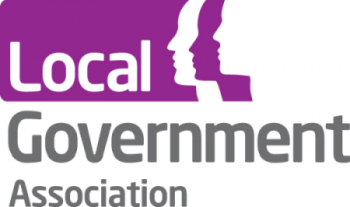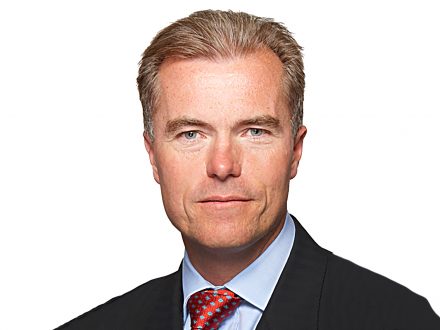Seven in 10 councillors reported experiencing abuse and intimidation within the last 12 months, with 1 in 10 experiencing abuse frequently, a new Local Government Association (LGA) Councillor Census reveals today.
Responses to the Local Government Association’s call for evidence of abuse and intimidation have also indicated that many councillors believe abuse is becoming more common, with the majority who experience abuse and intimidation, experiencing it multiple times and half experiencing it on an ongoing basis.
The LGA said councils are calling for government to work with local authorities and partners to urgently address toxic discourse and abuse against councillors or risk long-term impacts on local democracy and representation.
At its annual conference in Harrogate, the LGA is publishing a new report, ‘Debate Not Hate: the impact of abuse on local democracy’, which highlights how councillors are facing increasing abuse and intimidation from the public, with little power to deter perpetrators or support to tackle the issue.
This is leading to the expectation that councillors must tolerate high levels of sometimes extreme abuse and threats, discouraging prospective candidates from engaging with local politics.
According to the findings set out in the report of the LGA’s call for evidence of abuse and intimidation launched last October:
- 88 per cent of councillors who responded to the LGA’s call for evidence survey said they had experienced abuse or intimidation directed at them personally in relation to their role as a councillor or candidate;
- 76 per cent said they had witnessed such abuse. Social media was the most common place for abuse to take place, but two thirds had experienced abuse in person, with many describing use of threatening and discriminatory language and physical abuse such as spitting.
- The vulnerability of elected representatives has been at the forefront of the political sphere in recent years with high profile incidents like the murders of Jo Cox MP and Sir David Amess MP and 72 per cent of respondents stated they had taken some action to avoid intimidation and abuse, such as moderating planned and unplanned engagement with the public, never working alone, and installing home security equipment.
- Anecdotally, the call for evidence found that some councillors were receiving targeted and personalised abuse due to their protected characteristic. In particular, there is a perception that women, ethnic minorities and LGBTQIA+ councillors will experience higher volumes of threatening and discriminatory abuse, reflecting a 2020 study of the 2019 UK general election which found that women received more sexist abuse whereas men received more general and political abuse.
- Diverse local representation is the cornerstone of local democracy and councils strive to encourage new people from all backgrounds to stand in local elections. However, 60 per cent of respondents stated they knew others who were unwilling to run for election or take on leadership roles due to anticipated abuse.
Elected by their communities, councillors work hard to engage with and champion the needs of their communities in their decision making. Debate and disagreements are a healthy part of this democratic process and appropriate challenge is vital to hold elected members to account.
However, intimidation, threats and personalised abuse crosses the line into unacceptable behaviour and there is growing evidence that this is happening all too often.
The LGA said this is having a detrimental impact on the wellbeing of local councillors and their families, from their mental health to feelings of safety, with some reporting seeking medical advice for depression, anxiety and others unable to leave their homes at all or unaccompanied for fear of an incident.
The support available to protect the safety and wellbeing of councillors is limited and inconsistent across the sector and can be uncoordinated between agencies. Some respondents shared examples of little action being taken against perpetrators of abuse, leading to a normalisation and acceptance of abuse by councillors, staff and police.
Councillors also reported that they felt more vulnerable because they are often encouraged to publish their home addresses and may even be required to do so as part of declaring their financial interests.
As a result, the LGA is calling for government to prioritise a change in legislation to put it beyond doubt that councillors can proactively withhold their home address from the public register. This would reflect changes in 2018 to allow candidates running in local elections to choose whether to publish their home addresses on ballot papers.
The LGA is urging local government leaders, the Government, partners, political parties and social media companies to sign up to a public statement, pledging to come together to develop and implement an action plan to address the issue of abuse of local politicians and their safety.
Cllr James Jamieson, LGA Chairman, said:
“Councillors are as much a part of the community as those they represent, and they should not expect to be subjected to any form of abuse because of their position. Debating and disagreeing with one another is an essential part of democracy, however abuse has no place in politics and stops residents from engaging in local government and councillors from reaching their full potential in the role.
“Council officers, including some frontline staff, are also reporting higher levels of abuse which is completely unacceptable.
“We need to see concrete action to protect current councillors and ensure potential future councillors feel safe to stand for election. Anyone, regardless of their background or political affiliation, should feel safe and proud to represent their community.”
Marc Jones, Chair of the Association of Police and Crime Commissioners (APCC), said:
“We know that abuse and intimidation is a problem experienced by many elected PCCs in England and Wales and we have been working alongside the Local Government Association to raise awareness of this. Being subject to this sort of behaviour is completely unacceptable and should never be viewed as ‘just part of the role’ as elective representatives. We welcome this survey, the evidence from which, will be invaluable in enabling us to grasp the full extent of the problem.
“By sparking a national conversation, we can bring about positive change and ensure no public official feels unsafe representing the communities in which they serve.”
Jennifer Nadel, Co-Director of Compassion in Politics, said:
“Urgent action is needed to build a compassionate, inclusive, and cooperative political culture in Britain. These significant findings from the LGA reflect the conditions we find in national politics where abuse is habitual and conflict endemic. This is not only intolerable for our political representatives, it means the decisions that affect us all are being made in the worst possible conditions.
“As well as endorsing the changes rightly recommended by the LGA we would also like to see significant reforms to politics at every level so that we can build a system which promotes compassion and cooperation over excess conflict and competition. That means offering quality care and training to elected officials and staff so debates and decisions are made in a supportive environment. It means engaging and empowering underrepresented groups to stand for election, so our politics builds from diversity of thought. And it means creating new avenues through which the public can engage with the job of politics, bridging the chasm that is emerging between “us” and “them”.
John Austin, Chair of the Association of Democratic Services Officers (ADSO) said:
“ADSO stands shoulder to shoulder with the LGA on this issue and we thank them for their valuable work. Councillors are the lifeblood of our local democracy, and they must be protected. The findings of the LGA census are truly shocking and the situation has to be addressed by all stakeholders. We will do everything we can to support the LGA and others in this important work.”

Help keep news FREE for our readers
Supporting your local community newspaper/online news outlet is crucial now more than ever. If you believe in independent journalism, then consider making a valuable contribution by making a one-time or monthly donation. We operate in rural areas where providing unbiased news can be challenging. Read More About Supporting The West Wales Chronicle























